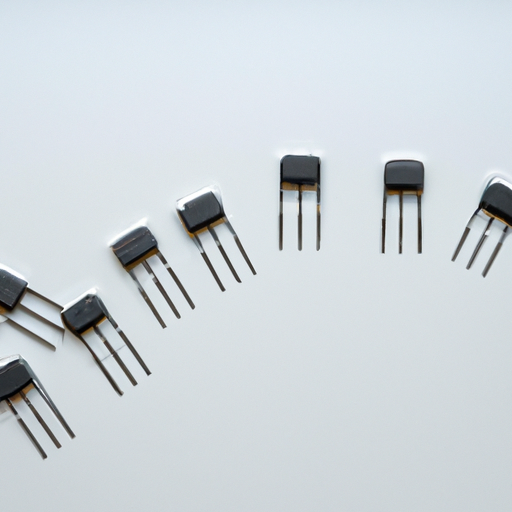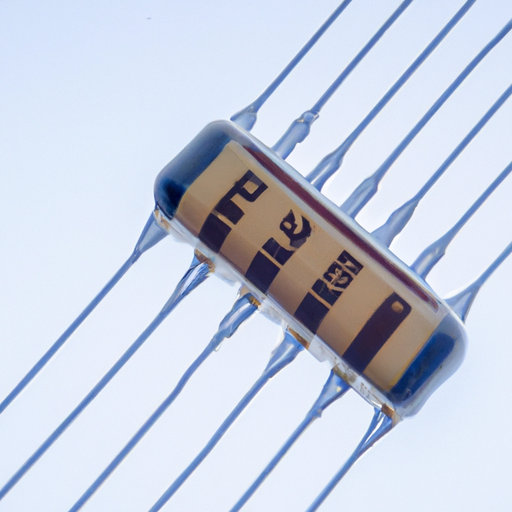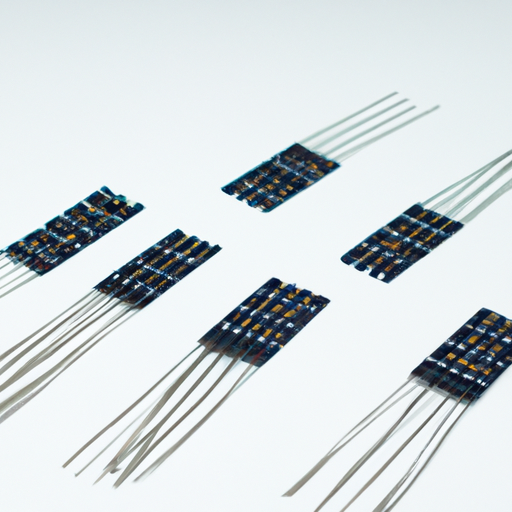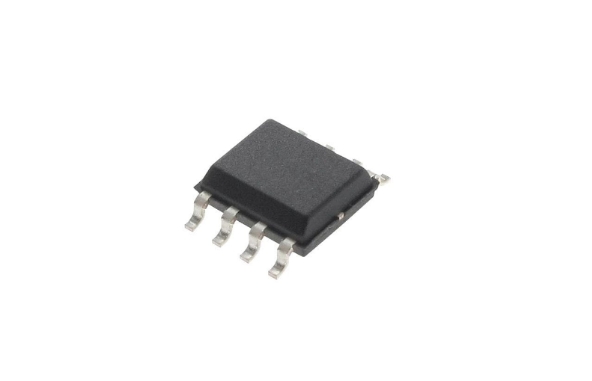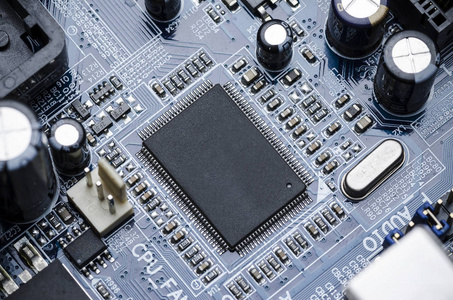What is the Current Status of the Chip Resistor Industry?
I. Introduction
Chip resistors, also known as surface mount resistors, are essential components in modern electronic devices. These tiny components play a critical role in controlling the flow of electric current, ensuring that devices operate efficiently and safely. As the backbone of countless applications—from smartphones to automotive systems—chip resistors are integral to the functionality of electronic circuits. This blog post will explore the current status of the chip resistor industry, examining market trends, technological advancements, applications, challenges, and future outlook.
II. Market Overview
A. Global Market Size and Growth Trends
The chip resistor market has experienced significant growth over the past decade. According to industry reports, the global market size for chip resistors was valued at approximately $2.5 billion in 2022, with a compound annual growth rate (CAGR) of around 5% projected through 2030. This growth is driven by the increasing demand for electronic devices across various sectors, including consumer electronics, automotive, and telecommunications.
1. Historical Growth Rates
Historically, the chip resistor market has seen steady growth, fueled by the rapid advancement of technology and the proliferation of electronic devices. The shift from traditional through-hole resistors to surface mount technology (SMT) has also contributed to this growth, as SMT allows for more compact designs and improved performance.
2. Current Market Valuation
As of 2023, the market valuation has reached approximately $3 billion, reflecting the ongoing demand for miniaturized electronic components. The rise of smart devices, IoT applications, and electric vehicles has further accelerated the need for high-quality chip resistors.
3. Future Projections
Looking ahead, the chip resistor market is expected to continue its upward trajectory, with projections indicating a market size of around $4.5 billion by 2030. Factors such as the increasing adoption of renewable energy technologies and advancements in automotive electronics are anticipated to drive this growth.
B. Key Players in the Industry
The chip resistor industry is characterized by a mix of established manufacturers and emerging companies.
1. Major Manufacturers
Key players in the market include:
Yageo Corporation: A leading manufacturer known for its extensive range of passive components, including chip resistors.
Vishay Intertechnology: Offers a wide variety of chip resistors and is recognized for its innovation in the field.
Panasonic Corporation: A major player in the electronics industry, providing high-quality chip resistors for various applications.
2. Emerging Companies
In addition to established players, several emerging companies are making their mark in the chip resistor market. These companies often focus on niche applications or innovative designs, contributing to the overall growth of the industry.
C. Geographic Distribution of the Market
The chip resistor market is globally distributed, with significant activity in several regions.
1. North America
North America remains a key market for chip resistors, driven by the presence of major electronics manufacturers and a strong demand for consumer electronics.
2. Europe
Europe is also a significant market, with a focus on automotive and industrial applications. The region's emphasis on sustainability and energy efficiency is influencing the demand for advanced chip resistors.
3. Asia-Pacific
The Asia-Pacific region is the largest market for chip resistors, accounting for over 40% of global sales. Countries like China, Japan, and South Korea are at the forefront of electronics manufacturing, driving demand for chip resistors.
4. Other Regions
Emerging markets in Latin America and the Middle East are also beginning to show growth potential, as electronic device adoption increases in these regions.
III. Technological Advancements
A. Innovations in Chip Resistor Design
The chip resistor industry is witnessing rapid technological advancements, particularly in design and manufacturing processes.
1. Miniaturization and Surface Mount Technology
One of the most significant trends is the miniaturization of chip resistors. As electronic devices become smaller and more compact, the demand for smaller resistors has surged. Surface mount technology (SMT) has enabled manufacturers to produce chip resistors that occupy minimal space while maintaining high performance.
2. Enhanced Performance Characteristics
Innovations in materials and manufacturing techniques have led to chip resistors with enhanced performance characteristics, such as improved temperature stability, lower noise levels, and higher power ratings. These advancements are crucial for applications requiring precision and reliability.
B. Integration with Other Electronic Components
The trend towards integration is also evident in the chip resistor industry. Manufacturers are increasingly designing chip resistors that can be integrated with other components, such as capacitors and inductors, to create compact, multifunctional modules. This integration simplifies circuit design and reduces assembly time.
C. Development of Specialized Chip Resistors
1. High-Power Resistors
The demand for high-power chip resistors is on the rise, particularly in automotive and industrial applications. These resistors are designed to handle higher currents and voltages, making them suitable for applications such as electric vehicles and renewable energy systems.
2. Precision Resistors
Precision chip resistors, which offer tight tolerance levels and stability, are gaining popularity in applications requiring high accuracy, such as medical devices and instrumentation.
IV. Applications of Chip Resistors
Chip resistors find applications across a wide range of industries, reflecting their versatility and importance in modern electronics.
A. Consumer Electronics
In consumer electronics, chip resistors are used in devices such as smartphones, tablets, and laptops. Their compact size and reliability make them ideal for these applications, where space is at a premium.
B. Automotive Industry
The automotive industry is increasingly adopting chip resistors in various systems, including engine control units, infotainment systems, and safety features. The shift towards electric vehicles is further driving demand for specialized chip resistors that can handle higher power levels.
C. Industrial Applications
In industrial settings, chip resistors are used in automation systems, robotics, and control systems. Their durability and performance under harsh conditions make them suitable for these applications.
D. Telecommunications
Chip resistors play a critical role in telecommunications equipment, including routers, switches, and base stations. The growing demand for high-speed internet and 5G technology is expected to boost the need for reliable chip resistors in this sector.
E. Medical Devices
In the medical field, precision chip resistors are essential for devices such as diagnostic equipment, monitoring systems, and imaging devices. The need for accuracy and reliability in medical applications drives the demand for high-quality chip resistors.
V. Challenges Facing the Industry
Despite the positive outlook for the chip resistor industry, several challenges must be addressed.
A. Supply Chain Disruptions
The COVID-19 pandemic and geopolitical tensions have led to significant supply chain disruptions, affecting the availability of raw materials and components. These disruptions have resulted in increased lead times and costs for manufacturers.
B. Raw Material Shortages
The chip resistor industry relies on specific raw materials, such as tantalum and nickel, which have experienced shortages due to increased demand and supply chain issues. These shortages can impact production and pricing.
C. Competition from Alternative Technologies
As technology evolves, chip resistors face competition from alternative technologies, such as digital resistors and programmable devices. Manufacturers must innovate to maintain their market position.
D. Environmental Regulations and Sustainability Concerns
Increasing environmental regulations and a growing emphasis on sustainability are prompting manufacturers to adopt eco-friendly practices. This shift may require investment in new technologies and processes, impacting profitability.
VI. Future Outlook
A. Predictions for Market Growth
The chip resistor market is poised for continued growth, driven by the increasing demand for electronic devices and advancements in technology. The market is expected to expand at a CAGR of around 5% through 2030.
B. Emerging Trends
1. Increased Demand for Miniaturization
As consumer electronics continue to shrink in size, the demand for smaller chip resistors will grow. Manufacturers will need to focus on developing innovative designs that meet these requirements.
2. Growth in Electric Vehicles and Renewable Energy Applications
The rise of electric vehicles and renewable energy technologies presents significant opportunities for the chip resistor industry. High-power and precision resistors will be in demand as these sectors expand.
C. Potential for Innovation and New Product Development
The chip resistor industry is ripe for innovation, with opportunities for new product development in specialized resistors and integrated components. Manufacturers that invest in research and development will be well-positioned to capitalize on emerging trends.
VII. Conclusion
In summary, the chip resistor industry is currently experiencing robust growth, driven by technological advancements and increasing demand across various applications. While challenges such as supply chain disruptions and raw material shortages persist, the future outlook remains positive. Staying informed about industry trends and innovations will be crucial for stakeholders in the chip resistor market. As technology continues to evolve, chip resistors will play an essential role in shaping the future of electronics, ensuring that devices operate efficiently and reliably.

